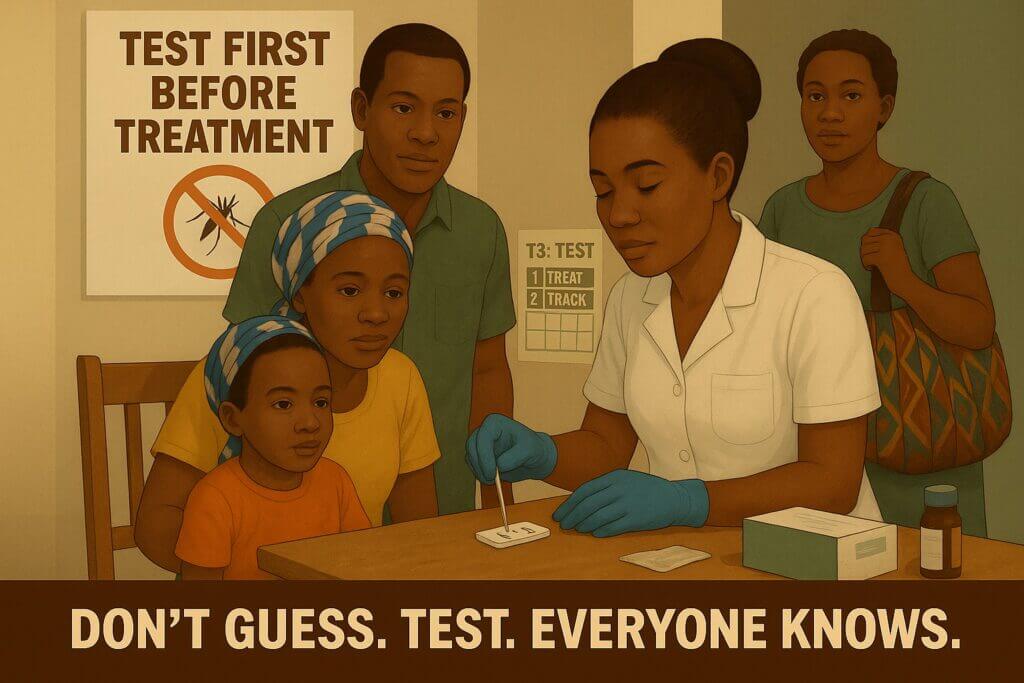Client Introduction
This campaign was executed in collaboration with key public health stakeholders in Ghana, under the broader national efforts to reduce the high burden of malaria. Pacific Solutions played a strategic role in crafting and implementing a behavior change communication campaign aimed at improving malaria treatment compliance and eliminating presumptive diagnosis. The campaign was rooted in the T3 strategy: Test, Treat, and Track, endorsed by the World Health Organization.
Brief
Malaria continues to be a major public health issue in Ghana, particularly affecting children under five and pregnant women. A critical barrier in controlling the disease has been the widespread practice of presumptive diagnosis—where individuals self-diagnose or are treated for malaria without prior testing, due to the similarity of malaria symptoms with other common illnesses.
The campaign, titled “Everyone Knows,” set out to address this behavior by promoting the message: “Test first for malaria before treatment.”
Target Audience:
– General public
– Children under five
– Pregnant women
– Caregivers and healthcare providers
The campaign has dual objectives of;
– Business Objective: Drive behavior change among 80% of the general public toward testing for malaria before treatment.
– Communication Objective: Raise awareness and educate the population on the T3 strategy—emphasizing the importance of confirming malaria through testing before taking medication.
Strategy and Execution
To effectively engage the audience and shift entrenched behaviors, the campaign adopted a storytelling and emotion-driven approach.
Key components of the campaign strategy included:
– Emotional Storytelling: Television, radio, and community theatre were used to dramatize the consequences of presumptive diagnosis and the benefits of following the T3 approach. Real-life scenarios were re-enacted to emotionally connect with the audience and encourage rethinking.
– Clear Messaging: The single-minded proposition, “Test First Before Treatment,” was consistently communicated across all touchpoints—from healthcare posters to community interactions.
– Community Outreach: Health workers and volunteers conducted face-to-face sessions in markets, clinics, and antenatal centers to reinforce the message and answer questions.
– Multi-Channel Media Integration: TV and radio spots, supported by print collateral and digital amplification, ensured wide and repeated exposure to campaign messages.
By combining emotional resonance with educational content, the campaign broke the cycle of self-diagnosis and encouraged responsible health-seeking behavior.
results
– 85% awareness of the need to test for malaria before treatment was recorded during the campaign period.
– 80% recall rate was observed in post-campaign evaluations, indicating strong message retention.
– Anecdotal evidence from health centers revealed a significant increase in patient-initiated requests for malaria testing before being prescribed or purchasing medication.
The “Everyone Knows” campaign successfully demonstrated the power of emotionally engaging content in influencing public health behavior. It set a benchmark in behavior change communication in Ghana and has since informed future campaigns in malaria control and treatment adherence.








